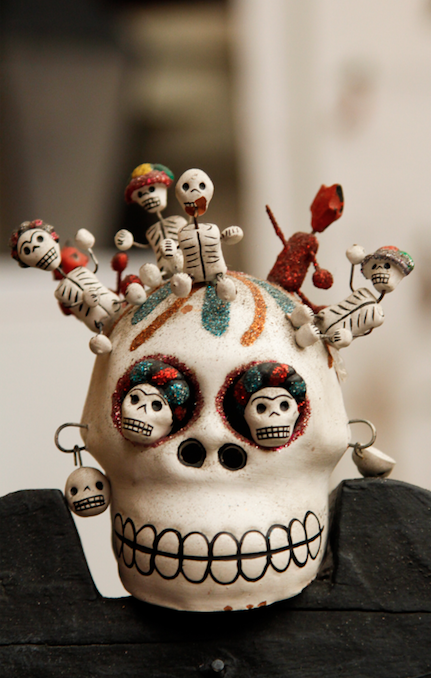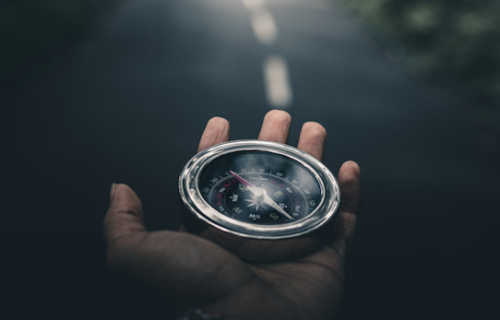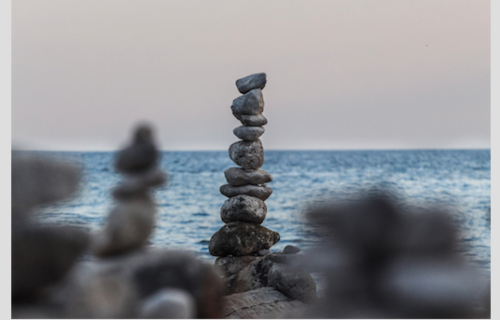
Samhain Gifts from the Ancestors: Healing Intergenerational and Historic Trauma
“It is liberating to consider that when we heal an ancestral pattern, we are not only freeing future generations, but healing backwards through time, liberating all those souls who were left unresolved, unforgiven, and misunderstood.”
-Toko-pa Turner from “Belonging: Remembering Ourselves Home”
As Samhain approaches and the veils between our world and the spirit world grow thinner, I’ve been sensing my ancestors surrounding me. I am more deeply recognizing the incredible gift of life I was given through them. Because they lived and survived the times they were born into, I am here. What resilience I have inherited! I’ve also been reflecting on the tremendous responsibility I have to continue with the healing work they could not (or would not) do in their lifetimes. Rather than feeling like I burden, I feel honoured that I have the stability to do the work of healing historic and intergenerational trauma in my blood lineage as it appears in my life. I do this so that future generations may be free of the baggage and terror that comes along with this.
My ancestors are from all around the Mediterranean Sea, the United Kingdom, Eastern Europe, and Northern Africa. My parents were both born in Portugal and Portuguese is my first language. As a first generation Canadian, mixed ancestry, LGBTQ woman I am accustomed to walking between the worlds. I am conscious that I can be a living bridge into worldviews that seem very disparate from one another. It’s not easy and I’ve had to learn how to wade through the complexity that these multiple realities bring. As humans, we all have shadow and light within us. (We do well to remember this when we are telling only glorified stories about our people.) This article is really about looking at the healing that is needed in the shadow of the collective unconscious of humans at this time in regards to racism, prejudice, and bigotry. This is hard to write and it may be hard for some folks to read too; I acknowledge that. But it’s necessary too. What is hidden cannot be healed.
In 1996, I flew to South Africa with my sister to visit family and travel the country. This turned out to be a life-changing experience that was filled with highs and very deep lows that reverberated in my life for months after. In a blog post from May 2017, I described this shift in consciousness in more detail:
It wasn’t until I went to visit relatives in South Africa that I saw how challenging life is for people with African ancestry that have darker skin than I do. In South Africa at that time, if you didn’t look “white” or “black,” then you fell into the “mulatto” category: you were not accepted by “white” communities or “black” ones… My sister looks more like the people…descended from Vikings who live in the north of Portugal and although we are full sisters, I look more like our African and Middle Eastern ancestors. As I got more and more tanned during our trip, people began treating me differently. I got harassed on the streets, grabbed, taunted, and I could not figure out what was happening.
It wasn’t until I walked into a general store one day and the owner told me to “mind my colour” that I began piecing together what was happening. I had never been treated with this level of disdain my whole life and it really had an influence on my psyche. It wasn’t until I was on a tram in Cape Town and I met another mulatto man who made eye contact with me that I understood what was going on. He told me about the extreme bias against mixed ancestry people in South Africa at the time and that these folks didn’t fit in anywhere except for in their own community.
I came home feeling so guilty and sad: I could come home and my skin colour would revert back to what it was. I did not have to live with being treated in such a way every day, but other folks did not have that option. In an effort to figure out the reason behind what just happened to me, I started studying African history in university. (I minored in history.) Understanding history is far from a redundant exercise. History is important in the present because it shows us where we came from and, hopefully, helps us to make different choices than our ancestors did: more life-giving ones.
When I first learned that the Portuguese were the first Europeans to start trading African slaves, it was a sobering time. I grew up hearing stories of clever Portuguese navigators who explored the world and navigated rough seas. Looking at this now from a different lens, I find it hard to focus solely on their brilliant nautical skills. Although there are aspects of Portuguese traditions and culture that I deeply cherish, I cannot ignore the horrible colonial legacy some of my ancestors instigated while at the same time enslaving others of my kin. This has been a challenging paradox on my healing journey. Admittedly, I have good days and not-so-good days: How can I remain proud of my culture while still holding it to account?
A while back, I attended a Mental Health Conference at the University of Calgary where the speakers were folks who experience racism and prejudice every day by virtue of their gender and skin colour: transgender, Black, brown and indigenous folks generously shared their stories. They all talked about their mental health challenges being directly tied to the intolerable, sometimes life-threatening, and often scary aggressions they encounter as they go out into the world every day. I got a small taste of what these folks experience when I was in South Africa and I could not imagine what it would be like to have to deal with that every day of my life. Not knowing whether you and your loved ones will be safe from moment to moment is something no one should have to face.
In his landmark book “My Grandmother’s Hands,” therapist Resmaa Menakem describes new trauma science in layman’s terms. He lays bare the fact that trauma is not a cognitive response to an event; trauma is in the body and its energy remains trapped there, wreaking havoc in our lives and in the lives of those who interact with us until it is metabolized. We are born with the somatic memories of our ancestors’ trauma and we can send our trauma into other peoples’ bodies. White folks have been sending their unresolved trauma into black and brown bodies for centuries.
We now know that trauma that is not healed is passed down to future generations via cellular memory. In order to release trauma from the body, we need to identify when we are having a trauma response and engage in somatic practices designed to move the trauma out of the body. According to Menakem, who no longer uses the term racism–preferring the more accurate term “white body supremacy”–if we really want to stop the cycle of institutionalized and societal racism, we folks who are identified by mainstream culture as being white (and are therefore oblivious to the impacts these constant aggressions have on Black, indigenous, and people of colour because we don’t experience them personally) must do the work of healing from historic trauma handed down by our ancestors. Menakem says:
In the healing of intergenerational trauma, you may also complete an action that was attempted and thwarted by a traumatized ancestor. The trauma got stuck in their body, and then passed down to you. Even though you may be cognitively unaware of this trauma…your own efforts simultaneously heal your trauma and release future generations from its grip.
As with most deep healing work, things tend to get messier before they get better. These practices require consistency, patience, and access to a community of support. It takes time to shift trauma out of the body–especially if generations of unmetabolized trauma has been passed down to you. As someone who benefits from being identified as a white person by society at large–even though I have ethnic and gender identities that I resonate with on the inside–I feel I have a responsibility to educate myself and continue to root out the racist attitudes I have inherited that I am not even aware of. I am open to making the changes needed on this journey; I know it’s my responsibility to do so as a druid and a shamanic practitioner who is committed to walking my talk.
We are all born into specific worldviews. We are all biased by our worldviews. Diversity educator and sociologist Robin DiAngelo affirms in her book “White Fragility” that it is simply impossible for humans to be objective; our views are always subjective based on underlying assumptions from our culture that we carry unknowingly. In order to counter implicit bias, we need to interact with other worldviews and bodies with self-awareness–practicing not reacting with defensiveness when new information that counters our beliefs arises and going into self-reflective processes instead. Canadian anti-racism activist and educator Destine Lord puts it this way:
Research books on white privilege that will challenge your worldview. Allies shouldn’t centre themselves. A good ally knows when to step up and step aside without taking it personally. Black folks should take the lead in sharing the changes that are needed. Ask yourself: What are Black social justice educators, social workers, reporters, etc. saying? Seek out diverse perspectives. As humans, we learn through repetition and making mistakes. You are learning too. It will feel uncomfortable if someone tells you something you did or said was racist. However, it doesn’t mean you are a bad person. The expectation is not perfection but that you will grow from it and that you don’t make the same mistake again. Practice modeling working through discomfort with others in front of children. We all have to learn how to wade through challenging moments in a good way. Discomfort is necessary in learning.
With Samhain being the beginning of the Celtic new year, I’ve been reflecting on the kind of world I want to help dream in. I believe that within each lineage lie the seeds of healing wisdom and knowledge our ancestors left for us. Even if we don’t remember where our ancestors came from, we can rest in the knowledge that they too had somatic and ceremonial ways of moving through the challenges that life brings. For example, in “My Grandmother’s Hands,” Menakem cites African embodied traditions that help to metabolize trauma including: “individual and collective humming, rocking, rhythmic clapping, drumming,…grounding touch, wailing circles, and call and response” singing. I am an ancestor of the future. We all are. Any one of us has the power to begin the journey of resolving intergenerational and historic trauma by choosing to water those seeds gifted to us. And in so doing, we not only heal ourselves but leave hope for our descendants. It is my steadfast prayer that instead of healing generations of trauma, our children’s children can focus their energy on building a new and sustainable world for future generations.
Samhain 2020Calgary, Alberta, Canada
Works Cited:
Book: “My Grandmother’s Hands: Racialized Trauma and the Pathway to Mending Our Hearts and Bodies” by Resmaa Menakem
Book: “White Fragility: Why it’s so Hard for White People to Talk About Racism” by Robin DiAngelo
Recommended Resource:
TED Talk: How childhood trauma affects health across a lifetime


